
KOREAN JOURNAL OF PARASITOLOGY
metrics 2024
Innovating Solutions for Parasitic Diseases
Introduction
Korean Journal of Parasitology is a respected publication in the field of parasitology, originating from the esteemed Korean Society of Parasitology and affiliated with Seoul National University College of Medicine. Established in 1977, this journal focuses on disseminating significant research findings related to parasitic diseases, their vectors, and control measures, serving as a vital resource for researchers, medical professionals, and students alike. Although coverage in Scopus has been discontinued as of 2022, the journal remains a valuable platform for in-depth studies within the areas of Infectious Diseases and Immunology. With an ISSN of 0023-4001 and an E-ISSN of 1738-0006, the journal promotes open access to enhance academic sharing. Despite its current Scopus rankings, which place it in the 38th percentile for Infectious Diseases and 37th percentile for Immunology and Microbiology (Parasitology), it continues to contribute to the global discourse on parasitological research, encouraging collaboration and emphasizing the importance of this field in public health.
Metrics 2024
 -
- 1.40
1.40 1.30
1.30 -
-Metrics History
Rank 2024
Scopus
IF (Web Of Science)
JCI (Web Of Science)
Quartile History
Similar Journals

Parasite
Unveiling the complexities of parasitic interactions in science.Parasite is a distinguished open-access journal published by EDP Sciences S A based in France, specializing in the multifaceted field of parasitology and related disciplines. Since its inception in 1994, it has played a pivotal role in advancing research in Agricultural and Biological Sciences, Animal Science and Zoology, Infectious Diseases, Insect Science, and Veterinary Sciences, earning a prominent place in the academic community with its 2023 rankings placing it in the Q1 category for several key areas. With an impact factor reflective of its quality and engagement, the journal fosters a collaborative environment for researchers, professionals, and students to disseminate and access high-quality studies and reviews. Operating under an open-access policy since 2013, Parasite ensures that cutting-edge research is accessible to a global audience, thereby promoting knowledge sharing and innovation in the field. For more information, please visit the journal's homepage and explore its extensive repository of articles that contribute to the understanding of parasitic interactions and their implications in health and agriculture.

ACTA PARASITOLOGICA
Illuminating the World of ParasitesACTA PARASITOLOGICA, published by SPRINGER INT PUBL AG, stands as a pivotal journal within the field of Parasitology, boasting an ISSN of 1230-2821 and an E-ISSN of 1896-1851. Based in Germany, it has been providing valuable insights and research contributions since its inception, with publishing years converging from 1992 to 1994 and consistently from 1996 to 2024. The journal is recognized in the 2023 Category Quartiles as Q3 in Parasitology, indicating its significant impact and growing influence in the discipline, reflected in its Rank #43/79 in the Scopus Ranks for Immunology and Microbiology (Parasitology). Although not currently available in an Open Access format, ACTA PARASITOLOGICA remains a critical resource for researchers, professionals, and students alike, serving as a platform for the latest developments, methodologies, and discoveries in parasitic research. Its ongoing commitment to advancing the understanding of parasitic diseases and their impact on health and ecosystems underscores its importance in both academia and public health.

SYSTEMATIC PARASITOLOGY
Unraveling the complexities of parasitic life.SYSTEMATIC PARASITOLOGY, a premier academic journal published by Springer, serves as a vital resource in the field of parasitology. Since its inception in 1979, this journal has committed itself to advancing the understanding of parasitic organisms and their interactions with hosts, thus playing a significant role in both basic and applied research. With an impactful contribution to the scientific community—evidenced by its Scopus ranking and its position in the third quartile (Q3) within the Parasitology category—the journal provides a platform for high-quality, peer-reviewed research that spans a variety of topics from molecular biology to ecology. Although not currently open access, SYSTEMATIC PARASITOLOGY remains essential for researchers, professionals, and students who seek to stay at the forefront of parasitological studies and contribute to ongoing developments in the domain. Published in the Netherlands, it continues to attract a diverse international readership, fostering a collaborative scientific environment.
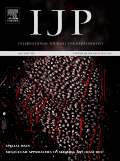
INTERNATIONAL JOURNAL FOR PARASITOLOGY
Illuminating the Path to Understanding Parasitic InfectionsInternational Journal for Parasitology, published by Elsevier Sci Ltd, stands as a premier platform for disseminating groundbreaking research in the fields of parasitology and infectious diseases. With an impressive impact factor represented by its Q1 quartile rankings in both Infectious Diseases and Parasitology for 2023, this journal commands significant attention within the scientific community. Operating since 1971, it has profoundly contributed to the understanding of parasitic infections and their implications for human health, occupying a distinguished position ranked #7 out of 79 in Parasitology and #64 out of 344 in Infectious Diseases according to Scopus metrics. Although the journal currently does not offer open access options, it ensures rigorous peer review and unparalleled academic integrity, providing researchers, professionals, and students with critical insights necessary for advancing knowledge and fostering innovations in parasitology. Together with its rich historical foundation and commitment to excellence, the journal is indispensable for anyone delving into the complexities of parasites and their impact on both host and ecosystem.
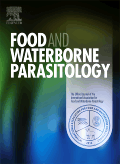
Food and Waterborne Parasitology
Elevating Research on Parasitic Threats to Food and WaterFood and Waterborne Parasitology is a premier open-access journal published by ELSEVIER, dedicated to the critical study of parasites affecting food and water safety. Since its inception in 2015, the journal has significantly contributed to research in the fields of epidemiology, food science, and parasitology, achieving impressive rankings in its categories with a Q1 status in Food Science and a Q2 in both Epidemiology and Parasitology as of 2023. Addressed from RADARWEG 29, 1043 NX Amsterdam, Netherlands, it garners attention for its accessible content, aiming to elevate the understanding of the impact of parasitic organisms on public health and food security. With its open-access model, the journal enhances visibility and dissemination of research findings, fostering collaboration and innovation among researchers, professionals, and students alike. By bridging scientific inquiry with practical applications, Food and Waterborne Parasitology plays a pivotal role in addressing global health challenges and advancing knowledge in this vital area of study.

REVISTA BRASILEIRA DE PARASITOLOGIA VETERINARIA
Advancing Veterinary Health Through Innovative Parasitology ResearchThe REVISTA BRASILEIRA DE PARASITOLOGIA VETERINARIA, published by the BRAZILIAN COLLEGE OF VETERINARY PARASITOLOGY, serves as a premier platform for disseminating groundbreaking research and advancements in the field of veterinary parasitology. Since its transition to Open Access in 2007, the journal has significantly contributed to fostering global collaboration and knowledge sharing among researchers and practitioners. Situated in Brazil, this esteemed journal features a diverse range of studies focused on the latest developments and challenges in veterinary and parasitological sciences. With a commendable Q3 ranking in Parasitology and Q2 ranking in Veterinary (miscellaneous) for 2023, it is recognized for its growing impact in the academic community, particularly holding positions in the 60th percentile for General Veterinary and 37th percentile in Parasitology. Researchers, professionals, and students interested in enriching their understanding of veterinary parasitology will find this journal a vital resource, as it bridges regional expertise with global research trends, thus embracing a holistic approach to veterinary health.
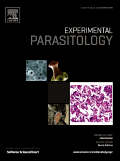
EXPERIMENTAL PARASITOLOGY
Pioneering Insights into Immunological Responses to ParasitesEXPERIMENTAL PARASITOLOGY, published by Academic Press Inc Elsevier Science, is a prominent journal in the domains of immunology, infectious diseases, and parasitology, with roots extending back to 1951. This journal, bearing the ISSN 0014-4894 and E-ISSN 1090-2449, serves as a critical conduit for sharing advancements in the understanding of parasite biology, host-parasite interactions, and the immunological responses elicited by parasitic infections. Although it currently operates under a subscription model without open access options, its rigorous scholarly content is vital for researchers and practitioners alike looking to stay informed on the latest developments and applications in the field. With a recent categorization as Q3 in key scientific categories, including Infectious Diseases and Parasitology, and a Scopus ranking solidifying its relevance, EXPERIMENTAL PARASITOLOGY is an essential resource for those committed to advancing knowledge and solutions to parasitic diseases.
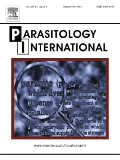
PARASITOLOGY INTERNATIONAL
Elevating Standards in Parasitology ResearchParasitology International, published by Elsevier Ireland Ltd, is a leading journal in the field of parasitology and infectious diseases. With its ISSN 1383-5769 and E-ISSN 1873-0329, this esteemed journal provides a platform for the dissemination of high-quality research covering various aspects of parasitic diseases and their treatment. Recognized for its rigorous peer-review process, Parasitology International currently holds a commendable Q2 ranking in both the Infectious Diseases and Parasitology categories for 2023. The journal's Scopus rankings further enhance its reputation, positioning it at Rank #33/79 in Parasitology and Rank #166/344 in Infectious Diseases. Covering a broad range of topics from host-parasite interactions to novel treatments, this journal plays a pivotal role in advancing knowledge and fostering innovation within the research community. Though it does not currently operate as an open access journal, it continues to attract contributions from leading experts around the world, making it an invaluable resource for researchers, professionals, and students committed to understanding and combating parasitic diseases.
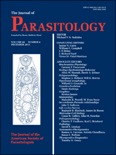
JOURNAL OF PARASITOLOGY
Unraveling the Mysteries of Parasitology Since 1945JOURNAL OF PARASITOLOGY is a leading scholarly publication dedicated to the field of parasitology, published by ALLEN PRESS INC. With an impactful history spanning from 1945 to 2024, this journal serves as a vital resource for researchers, professionals, and students interested in the complex interactions between parasites and their hosts. Operating from its base in the United States, this journal holds a Scopus quartile ranking of Q3 in Ecology, Evolution, Behavior and Systematics, Medicine (Miscellaneous), and Parasitology, providing a solid reflection of its impact within these categories. While currently not offering Open Access, the JOURNAL OF PARASITOLOGY continues to encourage the dissemination of pivotal research findings that contribute to our understanding of parasitic diseases and ecological systems, positioning it as an indispensable tool for knowledge advancement in the life sciences.

ACTA TROPICA
Elevating Standards in Tropical Research ExcellenceACTA TROPICA is a prestigious academic journal published by Elsevier, dedicated to advancing knowledge in the fields of Infectious Diseases, Insect Science, Parasitology, and Veterinary sciences. With an ISSN of 0001-706X and an E-ISSN of 1873-6254, it has established itself as a vital resource since its inception in 1945. The journal is recognized for its significant impact within the scientific community, boasting a Q2 ranking in Infectious Diseases and Parasitology, and a Q1 ranking in both Insect Science and Veterinary (miscellaneous) categories as of 2023. Specifically, it ranks #19 in Scopus for Parasitology and #129 for Infectious Diseases, underscoring its high visibility and relevance in these vital research arenas. ACTA TROPICA is a non-open access journal, ensuring high-quality peer-reviewed content that complements ongoing research and professional practices among scientists, researchers, and students. Explore groundbreaking studies and contribute to the ongoing dialogue within your field by selecting ACTA TROPICA as your next publication destination.